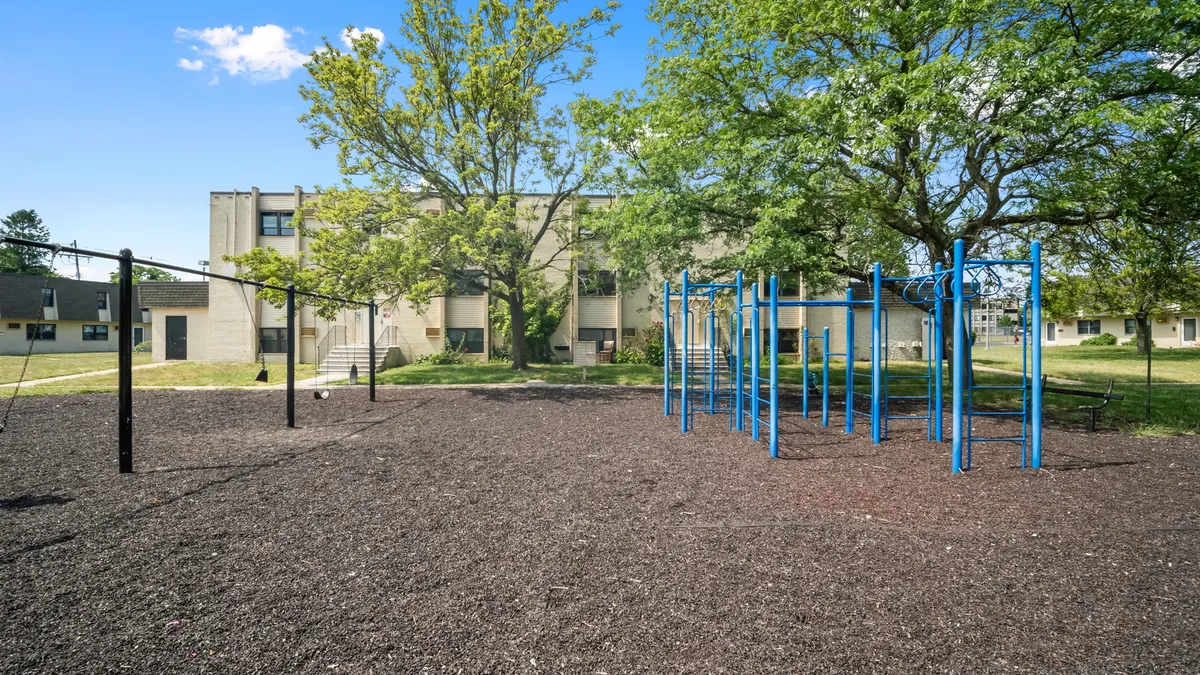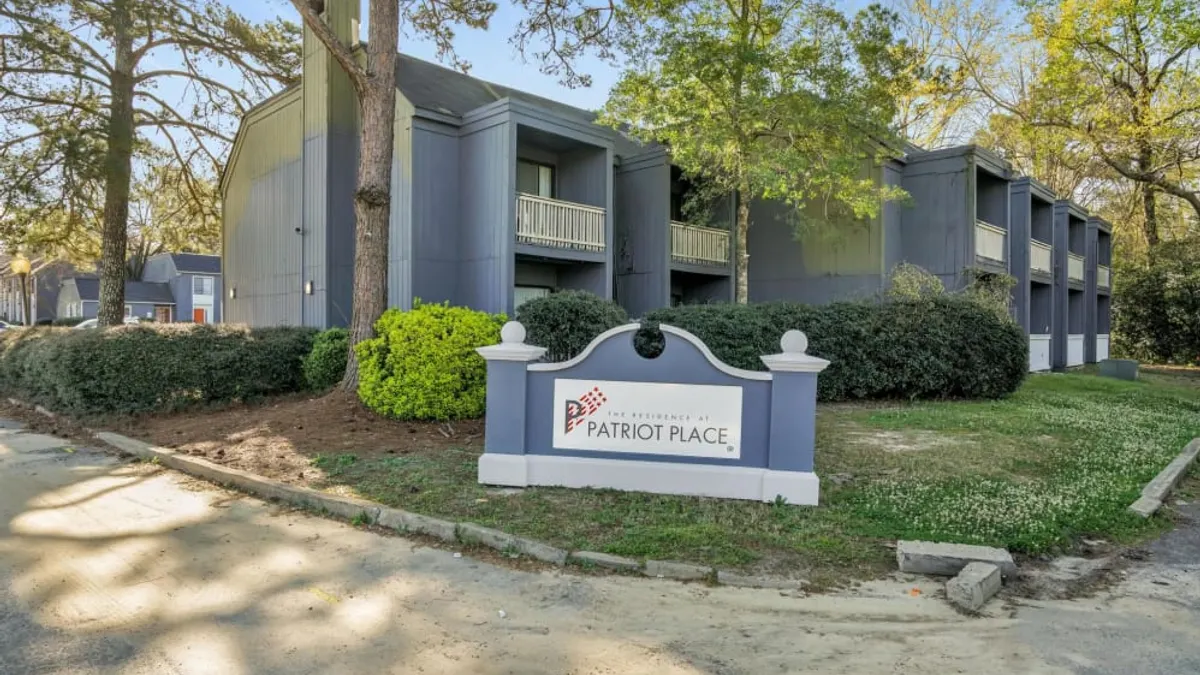Over the past year, Multifamily Dive has talked to more than 20 apartment executives to understand how the industry views centralization and how companies are adopting it. In the coming weeks, we’ll post a series of stories from those interviews. For the fifth installment, we’re looking at the evolution of the assistant manager position. Click here for the fourth installment.
Assistant managers haven’t always been known as assistant managers.
“When I came into the industry, the position was called the bookkeeper,” said Ian Bingham, senior vice president of business development at Buckingham Cos., an Indianapolis-based owner and operator with 13,000 units under management in secondary markets throughout the Midwest and Southeast. The bookkeeper would handle a property’s financial and accounting tasks, collecting rents, managing renewals and processing evictions, he said.
Over the years, the position evolved to become a learning role and stepladder for future property management positions. Assistant property managers were still keeping the books, but they might also be coordinating maintenance staff, assisting residents with questions, or handling marketing responsibilities.
But as apartment operators, both large and small, have debated and embraced the benefits of centralization, the assistant manager position has become emblematic of both the pros and cons. If many of their responsibilities can be handled on the computer or phone, does the position really need to be on site?
On the other hand, can an industry focused on customer experience afford to lose face-to-face resident encounters? Here, Multifamily Dive looks at how the assistant manager position is evolving — or whether, like the bookkeeper, it may become a relic of the past.
Focusing on customer service
Like many of his peers in the multifamily industry, Shah Alam, CEO of Gaithersburg, Maryland-based apartment operator Pratum Cos., thinks centralization can supplement his on-site teams. But Pratum, which operates more than 150 properties totaling more than 15,000 apartment homes in eight states across the mid-Atlantic and South Atlantic regions, including the District of Columbia, isn’t just looking at centralization as a way to reduce headcount.
“To me, centralization means you take the work that is really bringing your employees down — that is really wasting their talent — and you move it somewhere central so the employee can focus on the talent and the knowledge and the qualifications they were hired for,” Alam said.
As many companies are moving roles off-site, Alam said Pratum continues to see value in the assistant manager position. However, it is using technology as a way to allow its assistant managers to focus on career advancement rather than mundane tasks.

“The thing that we're trying to do differently is how do we keep that data entry, low-hanging-fruit work away from assistant managers so they can really focus on the customer service and service side of the community?” he said.
At this point, Pratum looks like an outlier among larger and mid-sized operators. Many management firms see technology as a way to move data processing and collections roles off-site and, in the process, save money.
“In multifamily, centralizing the assistant manager or the bookkeeper role is going to be a home run,” said Vanessa Siebern, senior vice president covering Northern California and the Pacific Northwest for Folsom, California-based FPI Management, the sixth largest manager in the country. “I think that the more that we can take off of the team and centralize and streamline, that is going to be a success.”
Moving admin off-site
If tasks can be done over the phone or through a computer, the person handling those roles doesn’t have to be on site. A few companies started sending workers to centralized locations years ago, but it wasn’t widespread.
But there has recently been a renewed push to send those responsibilities to another location.
Camden Property Trust has had a centralized service team for years, with its contact center established in 2008. In April 2022, the Houston-based REIT eliminated the assistant role on site and created a shared services group with about one-third of the staffing.
“It truly has made us more efficient,” said Laurie Baker, chief operating officer at Camden. “It's not about cutting our team. It was about how we utilize our team members in a way that gives the customer a better experience and allows us an opportunity for team members to grow in different ways.”

The centralization process can also create specialists, which can add efficiency. “In a lot of cases, if you're at the right scale, you can bring one person into the corporate office and focus on collections and bad debt, and they are really specialized in doing that,” said Spencer Gray, CEO of Indianapolis-based apartment owner and operator Gray Capital. “That's not always an easy job.”
At Atlanta-based apartment manager The RADCO Cos., assistant managers oversaw move-outs, deposit accounting and high-level ledger interactions. However, the firm developed a specialized group to handle those tasks, eliminating the need for the position at individual properties.
“We have rolled all of that to a central processing unit at our corporate headquarters in Atlanta,” senior vice president of operations Chris Simon told Multifamily Dive.
Trimming headcount
Centralization offers a lot of benefits, but companies wouldn’t do it if it didn’t save money.
Traditionally, a 300-unit property would have a manager, an assistant manager and one or two leasing associates. By moving the assistant manager off-site, many companies are finding they can spread administrative tasks for four or five apartment communities to one person.
By developing a central processing unit and business systems specialists to handle administrative tasks, RADCO decreased payroll costs, according to Simon.

“Not only are we lowering the staffing count, but we’re getting better consistency across the board by centralizing some of those operations,” Simon said.
Camden Property Trust saves $4 million per year by eliminating the assistant manager role. But it hasn’t sacrificed employee and resident satisfaction, recently winning awards in both categories.
“Yes, you can centralize,” said Tyler Christiansen, CEO of Funnel Leasing, a proptech firm based in Odessa, Florida, that counts Camden as a client. “Yes, you can get the cost savings, but it doesn't mean you have to do it in a way that leads to a negative perception.”
Advantages of centralized admin
Centralization has given management firms a way to offer remote job opportunities in management — a field that traditionally didn’t have those roles.
When Fairfield, New Jersey-based owner Woodmont Properties decided to move its administrative functions off-site, it had a great candidate at one of its properties who was seeking a remote role.
“This is a remote position, which was attractive to somebody who we knew was very, very efficient and very good at mining the details,” said Louis DeVos, vice president of property management at Woodmont. “It also has a customer service component because this person will be responsible for asking people to pay the rent if they’re late.”
Camden also offered former on-site assistant managers remote roles on its shared services team — something unheard of a generation ago.
“We were able to go to teams on-site and say, ‘We're going to eliminate these 55 positions and at the same time create new opportunities,” Baker said.

Taking those tasks that may be somewhat confrontational, like rent collection, away from property associates could have other advantages. “You can put the on-site teams at odds with their residents and tenants [when they have to collect rent],” Gray said.
Moving the administrative position off-site also increases efficiency and decreases distractions, according to DeVos.
“You’ve got a UPS guy who wants your attention, you’ve got the dog walker, you’ve got a prospect coming in,” DeVos said. “They will get a lot more work done administratively within a day versus being on site. That’s the beauty of that position.”
Click here to sign up to receive multifamily and apartment news like this article in your inbox every weekday.















